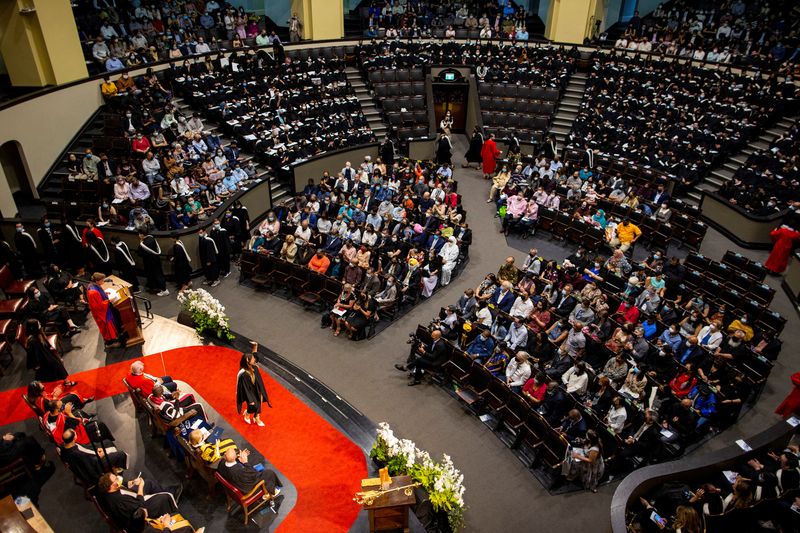By Steve Scherer
OTTAWA (Reuters) - Canadian Prime Minister Justin Trudeau has relied on immigration to drive economic growth and plug labor gaps, but now he is hitting the brakes after a seismic shift in public opinion that could undermine his chances to win the next election.
It was Trudeau's father, Pierre, who championed immigration as prime minister in the early 1970s, promoting "multiculturalism" as government policy. Over time, Canadians have come to see the country's diversity as part of its identity, like the maple leaf and hockey.
But when international students led a surge in immigration in the wake of the pandemic, the public mood soured as rental costs soared and services like healthcare came under strain.
"One of the reasons why we got here in the first place was that (provincial and federal) governments just didn't want to touch this issue out of a fear of looking xenophobic," said Mike Moffatt, founding director of the Place Centre, a thinktank focused on sustainable housing.
Immigration went from historically high levels of support among Canadians in 2020 to a three-decade low at the end of 2023, according to Ekos Research polling company data provided exclusively to Reuters.
In October, 44.5% of Canadians told Ekos there were too many immigrants, citing lack of affordable housing as their main reason, up from a 30-year low of 14% in February 2022. Rental inflation hit 7.8% in the final quarter of last year.
For Trudeau, the stakes are high, as his main rival, Conservative Party leader Pierre Poilievre has taken a commanding lead in opinion polls. Trudeau has to win back millions of voters to pull off a fourth national election victory, most likely next year.
"The chickens are coming home to roost," said Kareem El-Assal, an immigration expert and consultant in Toronto. "There was a bit of hubris, thinking that we can just increase our immigration and temporary resident levels in perpetuity without there being any blowback whatsoever."
Since taking power in 2015, Trudeau's Liberal government has progressively ramped up immigration in a country where already more than a fifth of the citizens are foreign born. Last year the population grew at its fastest pace in more than six decades due almost exclusively to immigration.
Poilievre has said that he will link the number of newcomers to available housing, without providing details. But Poilievre has not pounced on the immigration issue like Republican politicians in the United States have done because he needs to win votes in immigrant communities to defeat Trudeau.
"The Conservatives, in my view, can't exploit this issue," said Hassan Yussuff, a senator and former labor leader. To win the election, Poilievre will be need to win urban centers that are filled with second- and third-generation immigrants, Yussuff said.
Still, the shift in public mood prompted the federal government to cap those granted permanent resident status at 500,000 starting next year and to cut study permits for international students by 35% to 360,000 starting in April.

Those moves are part of the effort to significantly reduce "the sheer volume" of newcomers "that has just gotten out of control", Immigration Minister Marc Miller told Reuters in an interview last month.
There is a need to address the backlash because Canada is not immune to the polarization seen in the United States, Miller said.